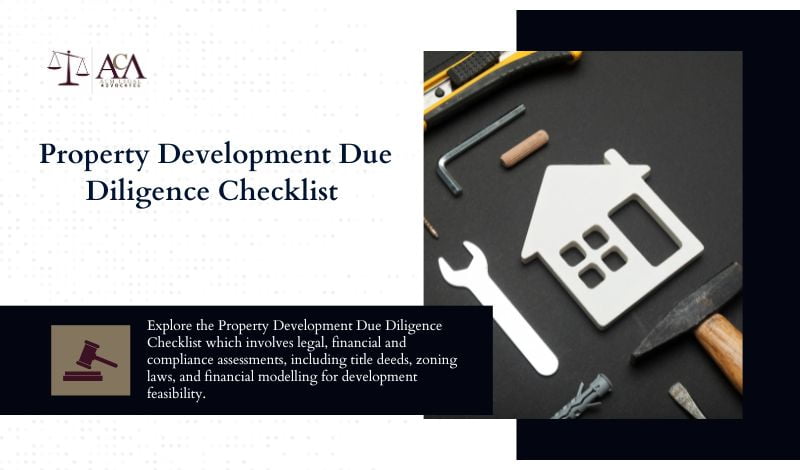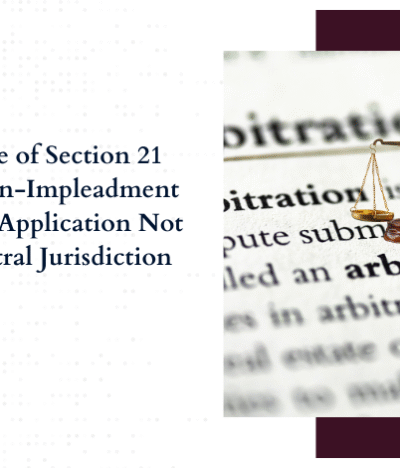Are you considering developing a new property from scratch? If yes, it is important to understand the risks and rewards associated with such huge investments. Understanding the landscape of property development requires more than just a keen eye for prime locations; it necessitates a thorough approach to every detail of the process.
Enter the property development due diligence checklist, a critical tool for anyone looking to invest in real estate development. This checklist not only guides you through the legal, financial and physical evaluations necessary but also ensures that you’re making informed decisions every step of the way.
What is Due Diligence for Property Development?
Due diligence for property development involves a thorough investigation and evaluation of a property or land before proceeding with a purchase or development project. This process includes examining legal, financial and physical aspects of the property to identify any potential risks, liabilities or complications that could affect the viability of the development.
Factors often assessed during property development due diligence include zoning regulations, market trends, title clarity, environmental conditions and infrastructure availability.
1. Legal Due Diligence in Property Development
Legal due diligence in property development in India involves scrutinizing various legal aspects such as title deeds, encumbrances, compliance with laws, and obtaining necessary government approvals.
- Title Deeds Verification
This involves examining the historical sequence of ownership documents to confirm the seller’s legal ownership. It’s essential to scrutinize Sale Deeds, Gift Deeds and Will documents, if applicable, ensuring there are no discrepancies or unclear transitions in property ownership.
- Easements and Legal Restrictions
Review property for any easements that grant others access or utility rights, potentially impacting the property’s usability or value. Legal restrictions could include zoning laws or heritage listings that limit development possibilities. Check property for legal easements or restrictions under The Indian Easement Act, 1882.
- Liens, Mortgages, Disputes
Investigate any existing financial liabilities, like loans secured against the property, ensuring they are cleared before transaction completion. Confirm there are no existing liens or mortgages under The Transfer of Property Act, 1882, and no ongoing legal disputes.
- Regulatory Compliance
Confirm the property’s compliance with local building codes, environmental laws and planning permissions to avoid future legal complications. erify compliance with all relevant regulations, including local municipal requirements, The Real Estate (Regulation and Development) Act, 2016 (RERA), and environmental laws. Non-compliance can lead to penalties, forced demolition, or inability to develop the land as intended.
- Contracts and Agreements Review in Property Development
Review existing contracts related to the property, including lease agreements, joint venture agreements or service contracts.
2. Compliance and Zoning
Compliance and zoning in property development ensure that all constructions and uses of land adhere to specified legal and regulatory standards. This involves understanding and implementing guidelines laid out by various governmental entities to maintain safety and functionality.
- Zoning Classification and Permissible Uses
Determine the zoning classification under local municipal laws to ensure the intended use is permitted, aligning with The Town and Country Planning Act. Check the property’s designation under local zoning laws, typically found in the municipal or city development plans, which dictate permissible uses such as residential, commercial or industrial.
- Land Use and Building Codes
Ensure the property meets the standards set by the National Building Code of India and local by-laws for structural safety, design, fire safety, construction standards and accessibility.
- Permits and Approvals
Secure necessary development permits from local, state, and central bodies, including municipal corporation, state environment impact assessment authority, Forest Conservation Act approvals, if applicable and central bodies if necessary, under acts like the Real Estate (Regulation and Development) Act, 2016.
- Environmental Regulations
Comply with the Environment (Protection) Act, 1986, including conducting necessary impact assessments and obtaining clearances for projects potentially affecting natural resources or ecosystems. Ensure that the property passes environmental assessments for contamination and adheres to sustainability guidelines.
3. Financial Analysis in Property Development
- Prepare a detailed budget
A detailed budget covers every financial aspect of a development project, from land acquisition costs (considering current market rates and legal expenses) to construction costs (including labour, material and contingencies). It should also account for miscellaneous expenses like marketing, legal fees and administrative costs. Accurate budgeting is crucial for project feasibility and obtaining financing. The budget should align with prevailing industry standards, such as those outlined by the Construction Industry Development Council (CIDC) of India, ensuring all potential costs are considered and adequately estimated.
- Develop a pro forma financial model
A pro forma financial model provides a detailed projection of the project’s financial performance, including revenue streams (such as sale price or rental income), operational expenses and net cash flows over time. This model assesses the project’s profitability, return on investment (ROI) and break-even analysis. It considers factors like market demand, occupancy rates and pricing strategies, all framed within the context of India’s real estate market dynamics and economic indicators. The RERA in India has brought transparency and accountability, impacting financial modeling by necessitating more accurate and conservative projections.
- Secure financing
Securing financing, involving sourcing funds through loans, equity or other financial instruments from banks, private lenders or investment partners. In India, developers must navigate regulations set by the Reserve Bank of India (RBI) and adhere to banking norms while negotiating terms that align with project timelines and cash flow projections. Terms should cover interest rates, repayment schedules and covenants to ensure they are conducive to the project’s financial health and aligned with market standards.
Frequently Asked Questions
1. What exactly does due diligence mean in the context of property development?
In the context of property development, due diligence refers to the comprehensive process of evaluating and analyzing a property or land before proceeding with its purchase, development or investment.
Due diligence in property development includes reviewing title deeds, checking for any legal encumbrances, assessing zoning and land use compliance, evaluating environmental risks, understanding market conditions and verifying all financial aspects related to the property.
2. What makes a due diligence checklist essential in property development dealings?
A due diligence checklist is crucial in property development dealings as it systematically addresses risk mitigation, ensures legal and regulatory compliance, evaluates financial feasibility, aids in comprehensive project planning and enhances transparency among all stakeholders.
3. What are the key components of a property development due diligence checklist?
The key components of a property development due diligence checklist typically include:
- Legal Verification
- Zoning and Planning Compliance
- Environmental Assessment
- Financial Analysis
- Physical and Site Inspection
- Market Analysis
- Regulatory Approvals and Permits
4. What role does property development valuation play in commercial real estate due diligence?
Property development valuation plays a crucial role in commercial real estate due diligence, serving as a foundational aspect of the investment decision-making process. Valuation provides an estimate of the market value based on factors such as location, current market trends, future revenue potential and costs associated with development and operations.
It is essential for securing financing, as lenders typically require a detailed analysis of the project’s worth and revenue-generating capacity.
5. Why is reviewing maintenance history important in commercial real estate due diligence?
Reviewing the maintenance history is important in commercial real estate due diligence because it provides insight into the property’s condition and the care it has received over time. This information helps assess the building’s structural integrity, longevity, and any potential issues that may require immediate or future repair. A well-maintained property is likely to incur lower repair and maintenance costs in the future, contributing to the overall financial health of the investment.
6. What legal aspects should be considered in property development due diligence?
In property development due diligence, several legal aspects should be meticulously considered:
- Title and Ownership
- Zoning and Land Use
- Environmental Regulations
- Easements and Restrictions
- Building Codes and Permits
- Contracts and Agreements
- Litigation and Disputes
Final Words
Due diligence in property development is a multifaceted process that encompasses legal, financial, environmental and physical assessments to ensure a well-informed investment decision. Key components include verifying title and ownership, ensuring compliance with zoning, land use, and environmental regulations, reviewing financial viability through detailed budgeting and market analysis and evaluating the property’s maintenance history and structural integrity. Addressing these aspects thoroughly mitigates potential risks and aligns the project with legal and market expectations, ultimately paving the way for a successful and profitable commercial real estate development.
Navigating property development can be tricky, right? If you’ve got questions or need some guidance, we’re here to help at ACM Legal. Check out our website and drop us a message. Let’s make this journey smoother for you!






